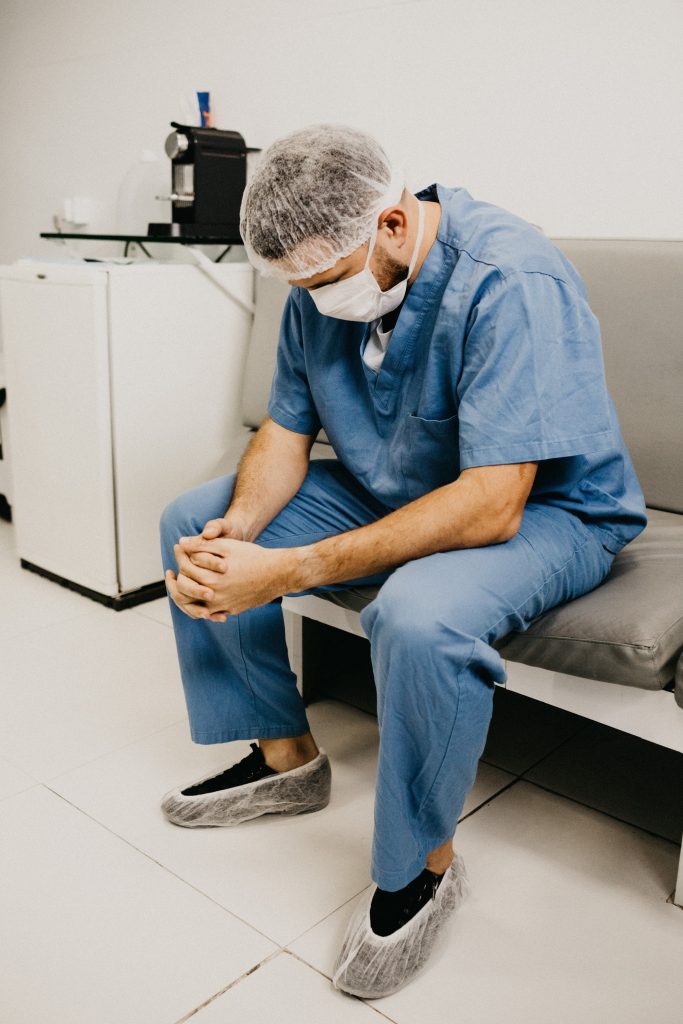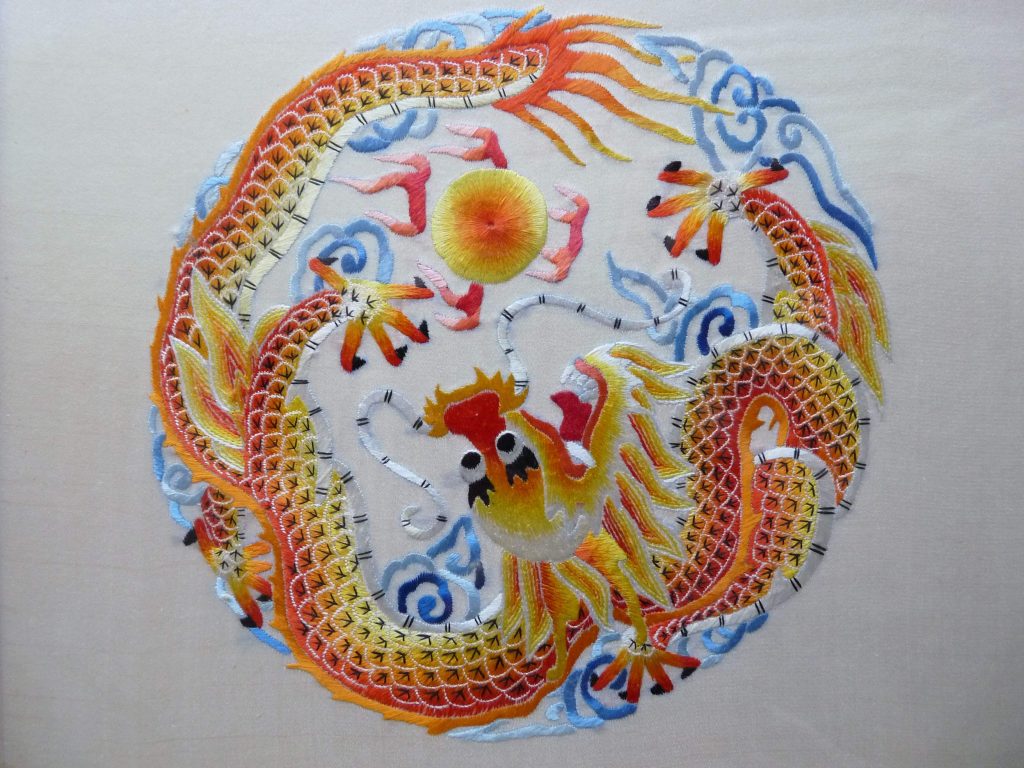Subscribe to the Newsletter
If you are interested in understanding how Traditional Chinese Medicine can improve your life sign up to my newsletter for the latest updates.

Why do we get chronic disease? It drags us down, costs the nation a fortune, does nobody any good (except for the pharmaceutical companies) and makes life a misery.
It’s one where your body has given up trying to get rid of the disease and is just holding it where it is. For example, you may have had a series of coughs or colds, each of which you ‘successfully’ treated with ‘over the counter’ remedies. Or maybe, stuff prescribed by doctor!
These cleared the
Except now you’re left with something that won’t shift. It could be, for example,
Your doctor doesn’t really have the weapons to deal with this kind of problem. He can send you for tests of course but they probably won’t show much.
In fact, there are hosts of conditions for which your doctor doesn’t really have an effective answer, except sometimes by giving powerful suppressive medicine, exactly the kind you don’t need.
You don’t believe me? What about night cramps, restless legs, PMT, mild aches and pains, old sports injuries …?
All these chronic disease conditions are often easily diagnosed in Chinese medicine. If such a diagnosis can be made in terms of a Chinese medicine syndrome, then it can usually be treated, along with the condition.
Your doctor doesn’t usually think in terms of nutrition – it’s hardly taught to doctors.

He may suspect that you are ‘run down’, but that isn’t really a medical condition, and these days it’s harder to give people sick-notes when they don’t have a definable disease.
Yet good nutrition might have prevented the whole situation.
Anyway, you aren’t sick but you don’t feel well. And you always feel like this: for years!

One gets a good hold of the other but he can’t quite make him submit because they are equally strong.
In this position, they are immobile. All their energies go into opposing one another. They can’t run around or sing or dance or tell stories in this situation: their options are severely curtailed.
If one succeeds, of course the situation changes.
But until that point, nothing much appears to happen, except they are slowly exhausting one another.
Take another example.
Suppose you have a fort in the old Wild West. It’s manned by the cowboys, and the Indians are about to attack.
The fort has a big barricade round its exterior and several internal walls, each inside the other, so that even if the Indians penetrate the outer defence, the defenders can withdraw to an internal barrier.

Right at the centre is the stronghold. This is powerfully fortified. (Yes, I know the picture shows something rather unusual for the Wild West!)
On your side you have many cowboys. They can spread out round the outermost fence and shoot the Indians as they attack.
But if there are hordes of attacking Indians who are suicidal in their courage, the external defence may eventually succumb. Then the cowboys retreat to the next blockade, further in.
Here the circumference is shorter – it’s a smaller circle. But there are less cowboys, because some got killed. Still, the number of cowboys per foot is greater so they can put up an even stronger fight.
But there’s a problem.
All the defenders now have less room to move around – it’s a smaller circle with a smaller area. Probably the Indians now have control of the cattle who were kept just inside the outer defence. So there’s less food and less room to manoeuvre inside.
On the other side, the Indians find it harder to attack because the fire from the cowboys is more concentrated.
So it’s likely to be stalemate. The Indians can attack but suffer devastating losses: the cowboys can’t counterattack because the Indians have most of their horses. Now you have a chronic condition.
In your body it’s equivalent to a chronic disease.
When we’re working and excited with our work, it’s easy to carry on to the point of exhaustion.
We don’t see it coming!
After all, we’re enjoying it so how can it be bad for us?

By the way, ‘work’ is a relative term. It might mean talking lots to do with a project, or driving long distances for meetings, or regularly sitting up late at your computer to finish reports. Other stressors include:
This question of enjoying ‘work’ has to be tackled!
It’s like my attitude to my children watching horror movies at midnight. They’re loving the excitement, the adrenalin and the pump.
They complain bitterly when I turn it off. But I’m thinking of school the next morning!
Even though you enjoy what you do, it won’t necessarily be good for you, and you do need rest.
‘A change is as good as a rest’, they say, and often it is. But sometimes you need to rest properly, to sleep, to recharge your batteries; to slow down, to let your mind daydream. Because if you continue as before, you won’t have the energy to keep the Indians at the outer perimeter. Chronic disease isn’t far away!
You don’t realise it, but you’re exhausted!
A small technical note! Lowered vitality, as in exhaustion, can mean a longer period before chronic disease or acute illness symptoms appear.
The healthier the individual, the faster symptoms appear. But then someone healthy would recognise that they were tired, and rest sooner and more.
This is where your cowboys were ready and keen to do their stuff, to fight the Indians, to have a battle, make lots of noise and then count all the dead bodies.
But you stopped them! You suppressed them! (How? You probably took a medicine that suppressed your body’s initial combative reaction – a fever, perhaps?)
So the Indians gained a foothold in your fort: they penetrated your outer perimeter fence and though you’ve now reached stalemate, you’re stuck with them.

They’re on your territory and you can’t get rid of them!
Neither side can renew the offensive: on your side the cowboys are stuck in a small space and haven’t got the horses: besides, they’re exhausted. On the Indian side the Indians have the outer part of your fort, but they’ve lost huge numbers of men.
So now you have ongoing symptoms that don’t change: you have a chronic disease.
Of course, with chronic disease, this isn’t the whole story.
There are many people who, because of trauma, overwhelming disease, genetics and other unfortunate circumstances have conditions that force them to live at well below their potential.
However, too often, the disease has penetrated deep because modern medicine didn’t know how to stop it except by suppressing the body’s own countermeasures, or didn’t know how to externalise it when the opportunity arose.
Helping these people get better is sometimes possible, but it takes time and it takes an understanding of the way the body works, the different levels of resistance it puts up.
And of course, sometimes we lack the knowledge to do this. Where someone is in long-term, incurable deep pain, then we should be grateful for modern medicines and, for example, stem cell research and the hope it offers, or until we think of something better.
Technical Stuff here. Homoeopaths who know their theory may be upset with the way I’m using the word ‘chronic’ here.
This is not exactly what Samuel Hahnemann in his discussion of Chronic Diseases meant. To such homoeopaths I apologise, because part of what I’ve been describing is better discussed as a form of pseudo-chronic condition (ie there is a maintaining cause that, when lifted, might enable the body to improve itself).
Throughout this site you’ll occasionally come across the occasional term ‘disease-process‘. This is a rather technical term but it aims to explain what the body is doing about its situation, and how deep it has allowed the invader to penetrate.
That action and location are the ‘disease process’.
Just about everyone has some level of chronic disease, potential if not actual. Preventing it depends on raising our energy levels to the point where they resist its onset, often by producing acute disease. That means high levels of Vitality.

However, that we get ill at all depends not only on our Vitality but on our Susceptibility, which comes from our genes, our upbringing and how we’ve lived our lives.
This susceptibility means that one or more of our energy systems will tend to be more easily affected by disease than the others. Put simply, it means that whereas you get chronic sore throats, I get backache.
Understanding these two factors, Vitality and Susceptibility, and knowing how to compensate for the latter while raising the former, goes a long way towards chronic disease prevention.
Other pages to look at
Click to get back from Chronic Disease to Acupuncture Theory

Stay in Touch!
No spam, only notifications about new articles and updates.

Book a Video consultation if you want to know more about your symptoms

Why You get Nervous Stomach Anxiety and How to Handle It. Acupuncture has great ways to help.
Subscribe to the Newsletter
If you are interested in understanding how Traditional Chinese Medicine can improve your life sign up to my newsletter for the latest updates.
Subscribe to the Newsletter
If you are interested in understanding how Traditional Chinese Medicine can improve your life sign up to my newsletter for the latest updates.